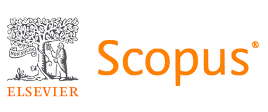The Effect of E-WOM and Religiosity on “X” Company’s Customer Satisfaction
Abstract
While the company is anonymized as “X Company” in the title, the empirical context of this study focuses on Starbucks Indonesia, where the rise of social media has amplified the impact of boycott movements through electronic word of mouth (e-WOM). This study examines the influence of anti-genocide digital campaign on consumer satisfaction in Malang City by analyzing: (1) the directly effect of e-WOM, religiosity, boycott, and brand image on boycott, brand image, and customer satisfaction (2) the influence of e-WOM and religiosity on customer satisfaction through brand image, and (3) the influence of e-WOM and religiosity on customer satisfaction through boycotts and brand image. The research employed a quantitative method using a Likert-based questionnaire, involving 64 respondents. Data analysis was conducted using SEM-PLS with SmartPLS 4.0 software. The results indicate that brand image has a positive and significant effect on consumer satisfaction, while e-WOM and religiosity have a significant positive effect on boycotts. However, e-WOM and boycotts have a significant negative impact on consumer satisfaction, while e-WOM has a positive effect on brand image. In contrast, religiosity does not significantly impact consumer satisfaction, nor does religiosity have a significant influence on boycotts or brand image. Additionally, negative e-WOM encourages boycotts, which harm brand image and reduce consumer satisfaction. These findings underscore the importance for companies, particularly Starbucks Indonesia, to closely monitor negative e-WOM, with a focus on upholding moral and religious values. As well as strengthening the brand image. Future research should consider consumer loyalty as a dependent variable, future explore religiosity dimensions, and expand the study to other industries. This study provides valuable insight for academics and businesses regarding the interplay between e-WOM, religiosity, and boycotts.
Keywords
Full Text:
PDFReferences
Abdullah, Z., Anuar, M. M., & Yaacob, M. R. (2021). The Effects of Religiosity and Attitude on Consumer Boycotts. International Journal of Academic Research in Business and Social Sciences, 11(18). https://doi.org/10.6007/ijarbss/v11-i18/11432
Al-Hyari, K., Alnsour, M., Al-Weshah, G., & Haffar, M. (2012). Religious beliefs and consumer behaviour: From loyalty to boycotts. Journal of Islamic Marketing, 3(2), 155–174. https://doi.org/10.1108/17590831211232564
Alfina, S., & Tresnawaty, Y. (2024). Pengaruh Religiusitas terhadap Motivasi Boikot Produk. Satwika : Kajian Ilmu Budaya Dan Perubahan Sosial, 8(2), 439–447. https://doi.org/10.22219/satwika.v8i2.33756
Elalfy, R. M., Elgazzar, A., El-Ashry, Y. Y., & Elsharnouby, M. H. (2025). The destination and local brand equity role in shaping tourist’s loyalty: the moderated mediation effect of age and number of visits. Future Business Journal, 11(1). https://doi.org/10.1186/s43093-025-00489-8
Ghozali, I., & Latan, H. (2015). Partial Least Squares: Konsep, Teknik dan Aplikasi Menggunakan Program SmartPLS 3.0. Badan Penerbit Universitas Diponegoro.
Hair, J. F., Hult, G. T. M., & Ringle, C. M. (2017). A primer on partial least squares structural equation modeling (PLS-SEM).
Keller, K. L. (2013). Strategic Brand Management: Building, Measuring, and Managing Brand Equity (4th ed., G). Pearson Education.
Kim, A. J., & Ko, E. (2012). Do social media marketing activities enhance customer equity? An empirical study of a luxury fashion brands. Journal of Business Research, 65(10), 1480–1486. https://doi.org/10.1016/j.jbusres.2011.10.014
Kim, C., Kim, W. Bin, Lee, S. H., Baek, E., Yan, X., Yeon, J., Yoo, Y., & Kang, S. (2025). Relations among consumer boycotts, country affinity, and global brands: The moderating effect of subjective norms. Asia Pacific Management Review, 30(1), 100335. https://doi.org/10.1016/j.apmrv.2024.11.005
Ladhari, R., & Michaud, M. (2015). EWOM effects on hotel booking intentions, attitudes, trust, and website perceptions. International Journal of Hospitality Management, 46, 36–45. https://doi.org/10.1016/j.ijhm.2015.01.010
Laroche, M., Habibi, M. R., Richard, M. O., & Sankaranarayanan, R. (2012). The effects of social media based brand communities on brand community markers, value creation practices, brand trust and brand loyalty. Computers in Human Behavior, 28(5), 1755–1767. https://doi.org/10.1016/j.chb.2012.04.016
Majeed, M., Chaudhary, A., & Chadha, R. (2025). Digital Transformation in the Customer Experience. In Digital Transformation in the Customer Experience (Issue December). https://doi.org/10.1201/9781003560449
Panteleeva, E., & Oyner, O. (2013). Corporate Brand Values Perception Gap Analysis as an Internal Marketing Management System Assessment Tool. SSRN Electronic Journal. https://doi.org/10.2139/ssrn.2206938
Putri, C. N., & Fauzi, T. H. (2023). The Effect of E-WOM and Brand Image on Purchasing Decisions of Automotive Products: Mediating Role of Brand Trust. Jurnal Aplikasi Bisnis Dan Manajemen, 9(3), 843–854. https://doi.org/10.17358/jabm.9.3.843
Sarstedt, M., Hair, J. F., Pick, M., Liengaard, B. D., Radomir, L., & Ringle, C. M. (2022). Progress in partial least squares structural equation modeling use in marketing research in the last decade. Psychology and Marketing, 39(5), 1035–1064. https://doi.org/10.1002/mar.21640
Selvianti, F., Ibdalsyah, I., & Hakiem, H. (2020). Pengaruh Religiusitas, Label Halal, dan Alasan Kesehatan terhadap Keputusan Membeli Produk Makanan Instan Korea. El-Mal: Jurnal Kajian Ekonomi & Bisnis Islam, 3(2), 183–197. https://doi.org/10.47467/elmal.v3i2.515
Singh, G., Slack, N., Sharma, S., Mudaliar, K., Narayan, S., Kaur, R., & Sharma, K. U. (2021). Antecedents involved in developing fast-food restaurant customer loyalty. TQM Journal, 33(8), 1753–1769. https://doi.org/10.1108/TQM-07-2020-0163
Sormin, S. K., & Malik, F. D. M. (2024). Perilaku Konsumsi Terhadap Boikot Produk Pro Israel. Karimah Tauhid, 3(3), 3114–3120. https://doi.org/10.30997/karimahtauhid.v3i3.12443
Suseno, A., Bidayati, U., Purwoko, P., & Waeno, M. (2024). Intrinsic religiosity and purchase intention: The role of attitude and moral efficacy. Jurnal Fokus Manajemen Bisnis, 14(2), 227–240. https://doi.org/10.12928/fokus.v14i2.10592
Vinerean, S., Cetina, I., Dumitrescu, L., & Tichindelean, M. (2013). The Effects of Social Media Marketing on Online Consumer Behavior. International Journal of Business and Management, 8(14), 66–79. https://doi.org/10.5539/ijbm.v8n14p66
Zanotti, J., Weiss, M. A., & Ann Ruane Legislative Attorney Jennifer Elsea, K. K. (2017). Israel and the Boycott, Divestment, and Sanctions (BDS) Movement Specialist in Middle Eastern Affairs. www.crs.gov
Refbacks
- There are currently no refbacks.

























